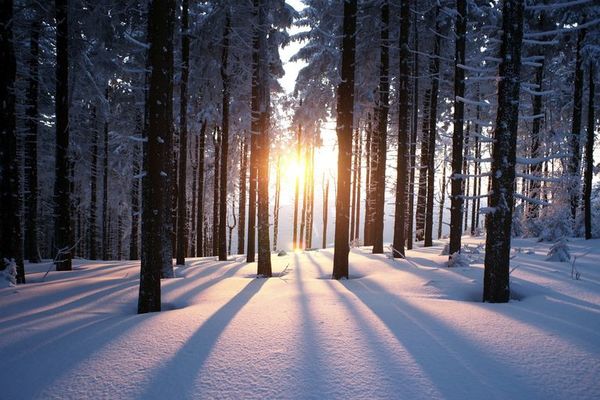How to Make Your Longest, Darkest Nights Shine
By Naseem Hrab
The Winter Solstice is happening as I write this column. It’s the shortest day of the year and the longest, darkest night of the year. But during this time, every night often feels like the longest, darkest night, doesn’t it? What makes the nights always feel so much harder?
I think many of us are taking the time to consider what’s important to us in life—whether we want to, or not. There’s something about the darkness and its stillness that bring those feelings, worries, thought revolutions and new intentions to, well, light. And while the pandemic has created new worries for many of us, the rest of our struggles haven’t suddenly disappeared in order to make room for these new ones. And yet, old and new joys still twinkle in the darkness.
I was chatting with a close friend a few nights ago and she asked me, “Why do you write?” I thought for a moment and said, “Because it makes me happy.” Writing always makes me happy when I’m unhappy. Or at the very least, it makes me less unhappy. There’s something about moving words around and around on a page that calms me. It goes without saying that I’ve spent a lot of time writing over the past several months. Writing stories always makes me feel like I’m a part of something bigger.
In Iran, there’s a Winter Solstice celebration called Yaldā Night that my mom has told me about. It is a Zoroastrian tradition, and it’s a celebration of longest night of the year and the birth of winter. Friends and family gather to eat, sing happy songs, share stories and read poetry well past midnight in an effort to welcome the rebirth of the sun after the longest night. Yaldā Night is a triumph of hope over despair. Fall fruits including pomegranates and persimmons are served, as well as summer fruits like watermelon. These fruits symbolize gratitude for each season’s bounty and some people say that these red fruits also symbolize the colour of the sun’s light.
During Yaldā Night, friends and family always recite the poety of 14th century Persian poet Hafez and consult his Dīvān of Hafez for divination. Hafez is one of the most revered poets in Iran and his poems on love, spirituality and hope have stood the test of time. Take, for instance, this one:
Your CanLit News
Subscribe to Open Book’s newsletter to get local book events, literary content, writing tips, and more in your inbox
My Eyes So Soft
Don't surrender your solitude so quickly
let it cut more deep.
Let it ferment and season you
as few human or even divine ingredients can.
Something missing in my heart tonight
has made my eyes so soft
my voice so tender
my need of God
absolutely clear.
Whether or not you believe in God, I think we can all find some meaning in this poem, especially during this time. I think Yaldā Night is beautiful for so many reasons, but I’m especially struck by its inherent wisdom: accept the existence of despair and always plan for joy. How can we find ways to celebrate the light with the darkness? And not simply, in spite of it.
This winter will feel longer and harder for most of us. How can we ensure that we find each other in these moments and collectively create joy? I can’t presume to know what may bring you happiness during this time, but I do know that we all must look for it everywhere.
The views expressed by Open Book columnists are those held by the authors and do not necessarily reflect the views of Open Book.
Naseem Hrab is the author of the picture books Ira Crumb Makes a Pretty Good Friend and Ira Crumb Feels the Feelings, illustrated by Josh Holinaty. Her comedy writing has appeared on McSweeney's Internet Tendency and The Rumpus. Sometimes Naseem likes to get up on a stage and tell true stories. She loves improv and coffee ice cream.
She worked as a librarian for a time and currently works in children's publishing.




